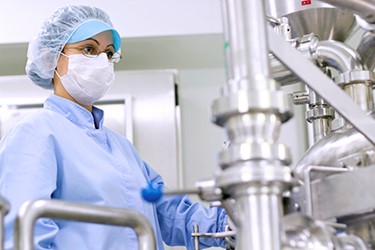Precision BioSciences Tackles Off-The-Shelf Cell Therapies

By Erin Harris, Editor-In-Chief, Cell & Gene
Follow Me On Twitter @ErinHarris_1

Allogeneic cell therapy products are displaying encouraging clinical and pre-clinical results. Allogenic CAR-T technology is still being developed, but as off-the-shelf cell therapeutics continue to gain momentum, another company — in this case, Precision BioSciences — a genome editing company known for its proprietary ARCUS genome editing platform, recently announced the opening of its Manufacturing Center for Advanced Therapeutics (MCAT), the first in-house current Good Manufacturing Process (cGMP) compliant manufacturing facility in the United States dedicated to genome-edited, off-the-shelf CAR-T cell therapy products, helping cell therapeutics move one step closer to increasingly scalable treatments. It is a multi-product facility designed to produce three different drug substances: allogeneic CAR-T cells, mRNA, and AAV viral vectors.
I caught up with Matt Kane, Chief Executive Officer and co-founder of Precision BioSciences to learn more about the manufacturing center and what that means for commercial launch. “We will be using this new manufacturing center to create clinical trial material for our Phase I/II clinical trials,” says Kane. “We have long understood, as a company developing CAR-T cell therapies and gene therapies, that the ability to scale and manufacture these products can be a limiting factor in effectively delivering them to patients. We set out to hit this issue head on and believe that this new facility helps position our cell and gene therapies for both successful clinical development and eventual delivery to patients.”
Patient Impact
The plant has the potential to be a commercial launch facility with the capacity to generate up to 10,000 doses of CAR-T cell therapies and 4,000 doses of gene therapies per year. In terms of patient impact, PrecisionBioSciences hopes that this facility will allow it to deliver its cell and gene therapies to patients efficiently and at scale. In terms of CAR-T, the combination of the therapies being not only donor-derived and available off-the-shelf but also readily available in large supplies from its new manufacturing facility will enable them to deliver life-changing new therapies to patients upon approval by the FDA. The drug developer is aiming to have its certifications in place to begin manufacturing in the fourth quarter and plans to use the facility to create drug ingredients for Phase I/II clinical trials scheduled to begin next year, and its MCAT facility is designed to meet regulatory requirements in the United States, Europe and Japan.
Other companies such as Allogene, in collaboration with Cellectis and Pfizer, are developing allogeneic CAR-T therapies. Although other autologous cell therapies have seen success, challenges in scaling, manufacturing, and meeting patient demand have caused problems for commercialization. The bottom line is that as therapeutic technologies mature, the cell manufacturing industry must correspondingly develop to adequately support commercial scale production.
